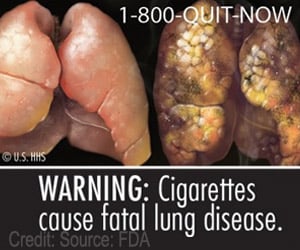County and municipality-level bans on tobacco sales to people under age 21 can yield substantive reductions in smoking among youth, finds a new study.

The researchers found that all else being equal, the smoking rate among 18- to 20-year-olds declines when the percent of an MMSA covered by tobacco-21 laws increases. This trend is not evident for 23- to 25-year-olds, providing further evidence that the finding for 18- to 20-year-olds reflects a response to tobacco-21 policies, said the researchers.
Specifically, between 2011 and 2016, 18- to 20-year-olds living in MMSAs with at least one local tobacco-21 law exhibited an average drop in their smoking rate of 1.2 percentage points, relative to those living in areas with no tobacco-21 policy. This reduction is equivalent to a 10% drop in smoking. Analyses suggest that the effects of state-level tobacco-21 laws would be even greater.
"Smoking is responsible for over 400,000 deaths in the United States alone every year, with the vast majority of smokers initiating use before age 21. Our analysis indicates that tobacco-21 laws are an effective way to reduce such take-up, even when they are implemented at the local level," said lead researcher Abigail S. Friedman, assistant professor in the Department of Health Policy and Management at the Yale School of Public Health.
As of July 18, 2019, 18 states and over 400 localities have passed laws banning tobacco sales to individuals under age 21. However, 16 states without tobacco-21 laws have preemption policies that prohibit local jurisdictions from raising the minimum legal sales age for tobacco products above the state's minimum tobacco sales age, which is usually 18 years old.
"Over 20% of the U.S. population under age 21 lives in a preemption state without a state-level tobacco-21 law. This study's findings suggest that such preemption laws prevent residents who support tobacco-21 policies from improving their community's health," says Friedman.
Advertisement













